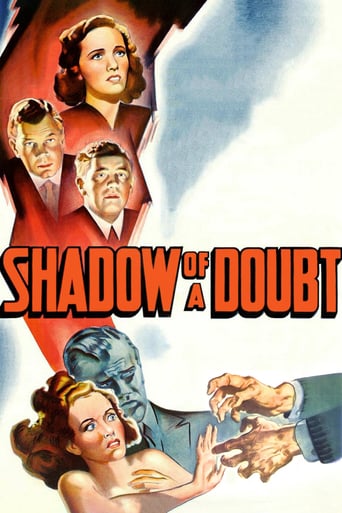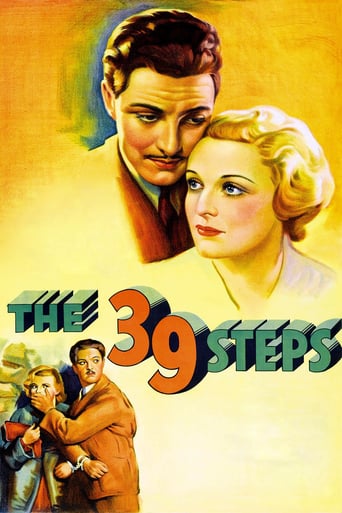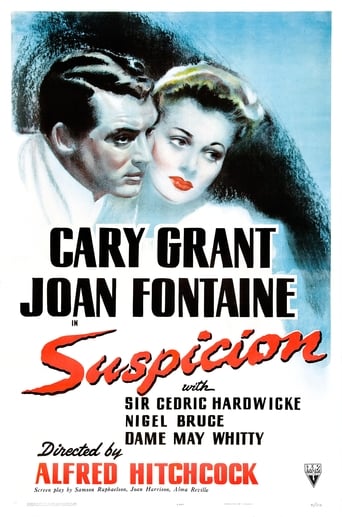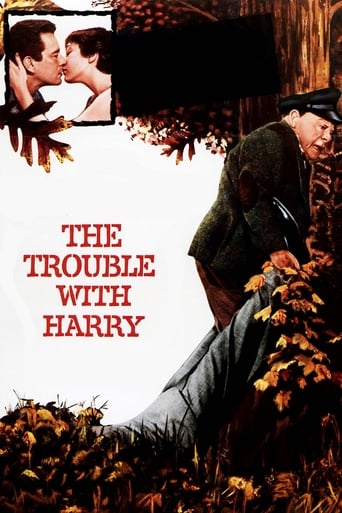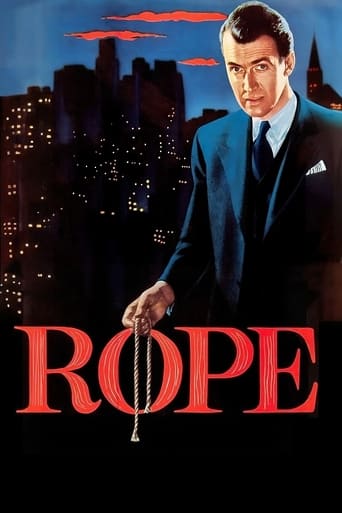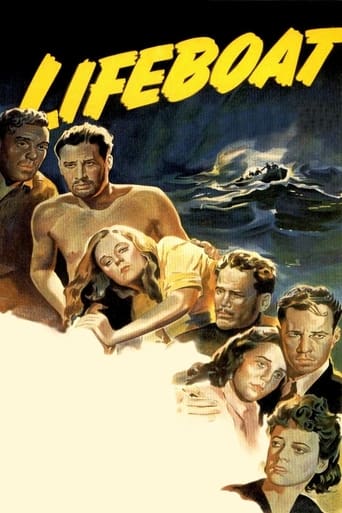


Lifeboat
During World War II, a small group of survivors is stranded in a lifeboat together after the ship they were traveling on is destroyed by a German U-boat.
-
- Cast:
- Tallulah Bankhead , William Bendix , Walter Slezak , Mary Anderson , John Hodiak , Henry Hull , Heather Angel


Similar titles
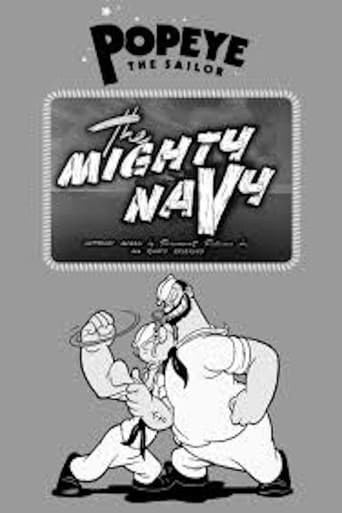
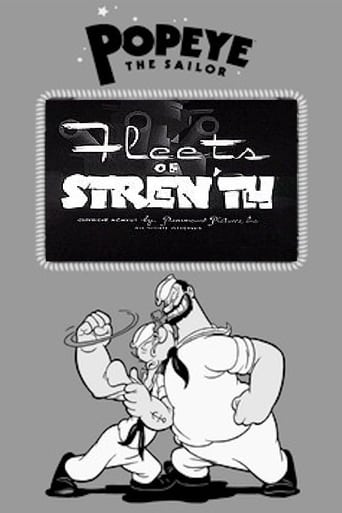

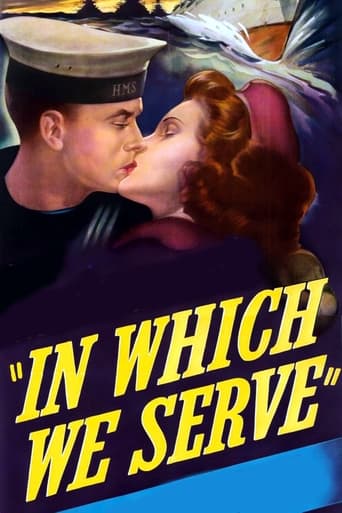
Reviews
It's no definitive masterpiece but it's damn close.
Not sure how, but this is easily one of the best movies all summer. Multiple levels of funny, never takes itself seriously, super colorful, and creative.
It's funny, it's tense, it features two great performances from two actors and the director expertly creates a web of odd tension where you actually don't know what is happening for the majority of the run time.
Actress is magnificent and exudes a hypnotic screen presence in this affecting drama.
This is a bit of a rarity, a Hitchcock film I've not seen before. I discovered Hitch in my teens and became obsessed, watching and loving everything I could get my hands on. How this slipped the net I'm not sure, but I'm mighty pleased I've caught up. Nearly 75 years old, this is still faultless with a wonderful cast of characters, stuck in a lifeboat after a U-Boat takes out their WW2 ship. The dialogue is masterful and the delivery more so. Tallulah Bankhead is particularly mesmerising. The camerawork simple, before the trickery and techniques of later films, but still amazingly effective. Packed with drama, tension and a story deeper than the ocean they find themselves alone on.
LIFEBOAT is extremely tense and provocative film. All the action is concentrated in the title of the film. It is fascinating that at any point the lifeboat is not out of the frame. It is the means of salvation and support for the people in it. People caught in the clash of thought and belief, on the edge between life and death.When in one place unexpectedly gather people of different character, attitudes and social status, then their characteristics dictate the new situation. In this case, the war accident. Hitchcock was with a little parody presented resourcefulness and sense in seemingly hopeless situation. When his own feelings suppressed sense and resourcefulness then you are in danger. In this case the feelings provoke anger. The blood is paid with blood. I'm kidding of course. It's simple, the heat of the moment people do not think. The consequences come with a peacefulness.Any rescue in this case is not a product nor reason nor resourcefulness. I think that the people in the boat in any case doomed. Spas is a mere coincidence. It is interesting that the time in which their life was hanging by a thread quickly forgotten.Lifeboat is technically excellent film. Very exciting sea drama. Acting does not leave you breathless, but not bad either.Tallulah Bankhead as Constance "Connie" Porter is sly trifler. A woman who takes care of themselves and each situation trying to get you to your advantage. If necessary, she will fall in love with. She is an actress who captures the appearance. In this case the dominant over others. Master of black humor. Walter Slezak as Kapitan Willi is one perfidious villain, commander of submarine interesting name Willy, with the cunning and intelligence put in the category of perfect movie villains. Officer's masterpiece, subtly playing with seemingly superior 'hosts' experienced its culmination in the film finale. Cunning and brutal character of the other hand is actually practical, brave and resolute in its intention. One moment of human madness and anger can not be no one to resist.The story of trust and betrayal and manipulation is well-designed. Black humor in large quantities is followed by constant voltage. It is unfortunate that with certain illogical, movie finally got propaganda note. However, the damage was not so big.
Tallulah Bankhead made very few films and this one is probably the best known of her film performances. She played Constance Porter, a self-involved wealthy journalist, who was aboard a ship before a Nazi torpedoed it. She survived along with her luggage in the lifeboat by herself until other survivors come along. Bankhead had a history of difficulty and perhaps it is why she never made a film career. Bankhead was better known onstage in theatre. The cast includes other theatre veterans like Hume Cronyn, Canada Lee and more. Mary Anderson and Heather Angel are the only two female supporting roles overshadowed by Bankhead. A film veteran like Walter Slezak also performs. The cast and ensemble work together as a team though surviving in the lifeboat. The film could actually be adapted to a stage production if possible. The film is set in one lifeboat surrounded by water. The director Alfred Hitchcock did an admirable job with this film. Sadly, "Lifeboat" gets overshadowed by other Hitchcock gems. If you see his entire film catalog, you will "Lifeboat" as a gem and treasure not to be missed. It should have been nominated for Best Film as well too. I only wondered and worried about what happened at the end of the film. It leaves you hanging and wanting more.
When we find out that Gus, who loves to dance, has a wound in his leg, we know right then he is doomed. Sure enough, the leg becomes gangrenous. As it turns out, Willi was a surgeon before the war and says that he can amputate. Gus does not want to have his leg removed, because he is afraid that he will lose Rosie, the girl back home whom he loves. He fears that she might not want to marry him if he comes back without one of his legs, especially since she loves to dance as much as Gus does. To make matters worse, Gus has a rival, Al Magaroulian, whom Rosie used to date and who is also a good dancer, even though fallen arches have kept him out of the war. Gus is afraid Rosie will go back to Al if he has his leg removed. But eventually he relents, and Willi performs the surgery.Later in the movie, while everyone is sleeping lethargically from dehydration, Gus catches Willi sipping a drink of water from his flask. To keep Gus from telling the others about the water, he pushes Gus overboard. When the others awaken from hearing Gus's cries for help, they realize Gus has drowned, and they ask Willi why he didn't do something. Willi does not, of course, tell them that he pushed Gus overboard to keep him from talking. Instead, he tells them that Gus voluntarily jumped overboard and that he thought it would be best not to do anything about it, saying, "You can't imagine how painful it was to me. All night long, to watch him turning and suffering and nothing I could do for him . The best way to help him was to let him go. I had no right to stop him, even if I wanted to. A poor cripple dying of hunger and thirst. What good could life be to a man like that?"Yes, German Nazis are evil, but are we all that good? Consider Willi's justification for letting Gus drown. The lie that Willi thinks will be an acceptable justification for "allowing" Gus to drown is actually repugnant to the other survivors, who listen to his words in horror. And we who watch this movie are likewise repulsed by Willi's callous remarks. But now let us ask ourselves why those who made this movie put this into the story. We cannot say it was to show that Willi was evil. We already knew that before he killed Gus. But if a murder was needed to really drive home the point, it was not Gus that had to be murdered. For example, it could have been Canada Lee that saw Willi sneaking a drink of water and who was then murdered by Willi and thrown overboard. Willi could then have tried to justify why he didn't save Canada by saying, "Like the Jews, Negroes are inferior. They are better off dead and the world is better off without them." That would definitely make it clear just how evil Willi is.One could come up with other ways of dramatically showing how evil Willi is, but there is no need. The point is that those who made this movie had a special reason for killing Gus off beyond making it clear that Willi was evil. They did it to make those in the audience feel better. The audience then and we today would have been uneasy if the movie had ended with Gus still alive in that lifeboat. Sure, Rosie might have not cared about Gus's leg. And she might have married him because she truly loved him. In a movie like "The Best Years of Our Lives" (1946), Hollywood could make sure that things would turn out that way. In that movie, Wilma (Cathy O'Donnell) agrees to marry Homer (Harold Russell) despite the fact that both forearms have been replaced by prostheses and despite the fact that her parents want her to break off the engagement. But in real life, we know things do not always work out that way. Rosie and Gus were not even engaged. Instead of being like Wilma, Rosie might have tried to put a good face on the situation for a couple of months and then broken up with Gus and gone back to Al Magaroulian.And so, rather than leave the audience suspecting just such an outcome for Gus and Rosie, which would have been depressing, those who made this movie killed Gus off. In this way, the audience was able to leave the theater feeling much better about the movie than if Gus had lived. You might even say that Gus's death was necessary for there to be a happy ending. But does that not imply that those who made the movie as well as those who watched it then and those of us who watch it now are essentially in agreement with Willi when he asked, "What good could life be to a man like that?"We shake our heads No. We insist that Gus could have gotten over the loss of Rosie and dancing, that he could have lived a full, rewarding life nevertheless. But if that really were the way we all feel, Gus's death would not give us a sense of relief. Those who made the movie and those of us who watch it are all complicit in wanting Gus's death so that we can all feel better.Of course, there is a big difference between committing an actual murder and merely writing a story in which a man is murdered, between saying the dead man is better off and saying that the death of that man makes the story better. And so, whereas Willi was guilty of a horrible crime, we are only guilty of liking a movie better because such a crime takes place.And yet , and yet .


